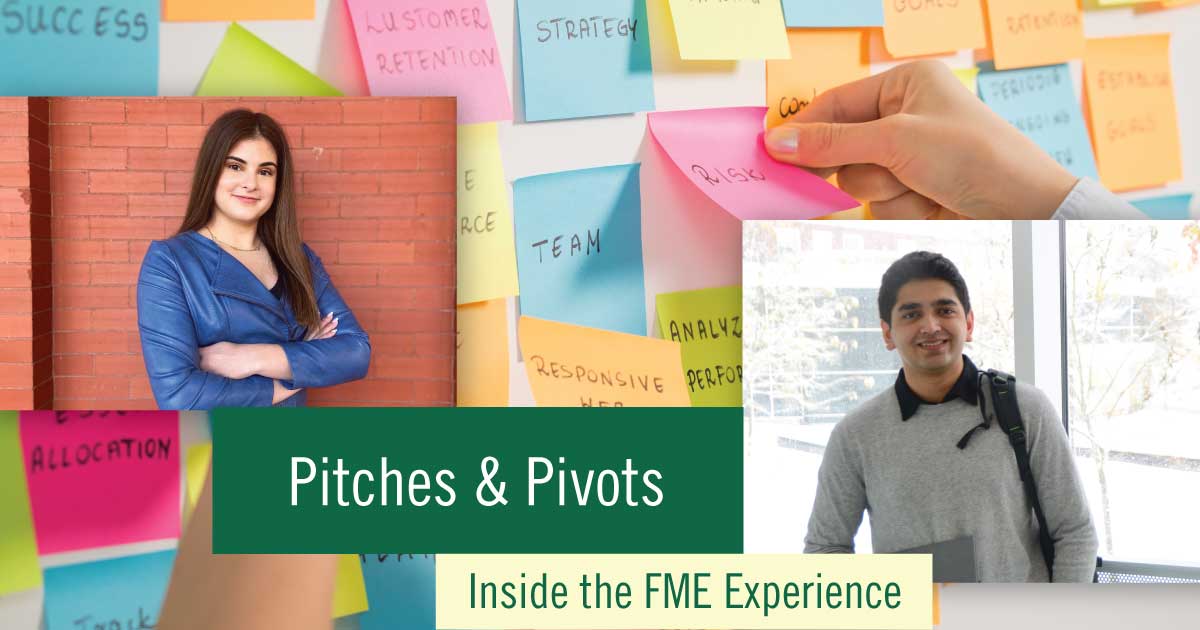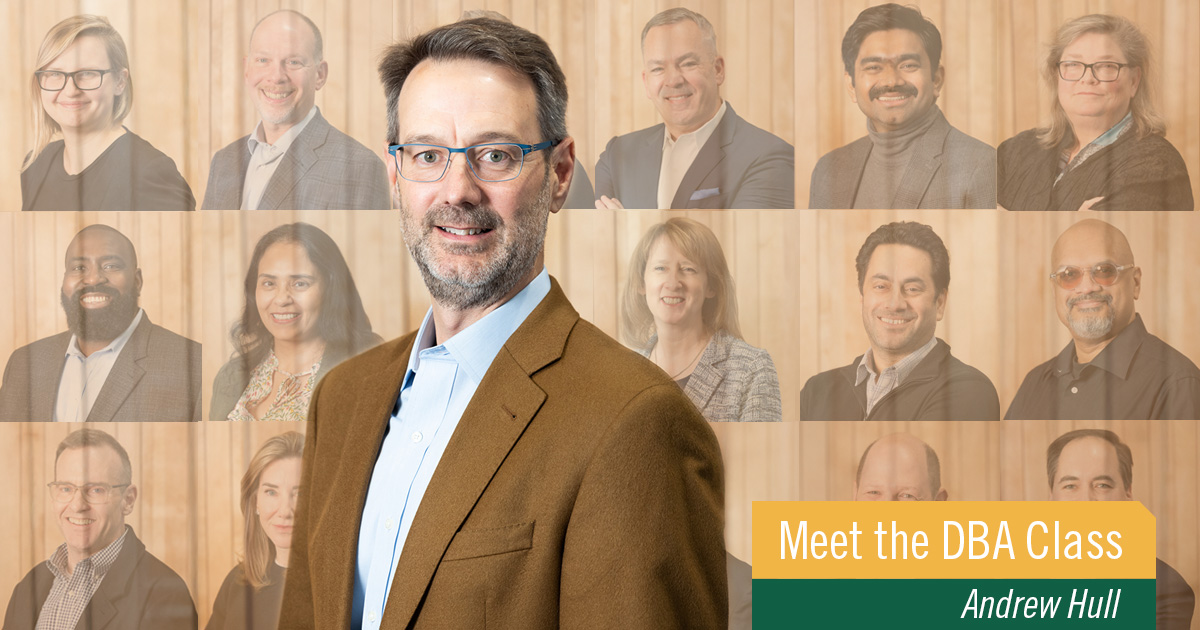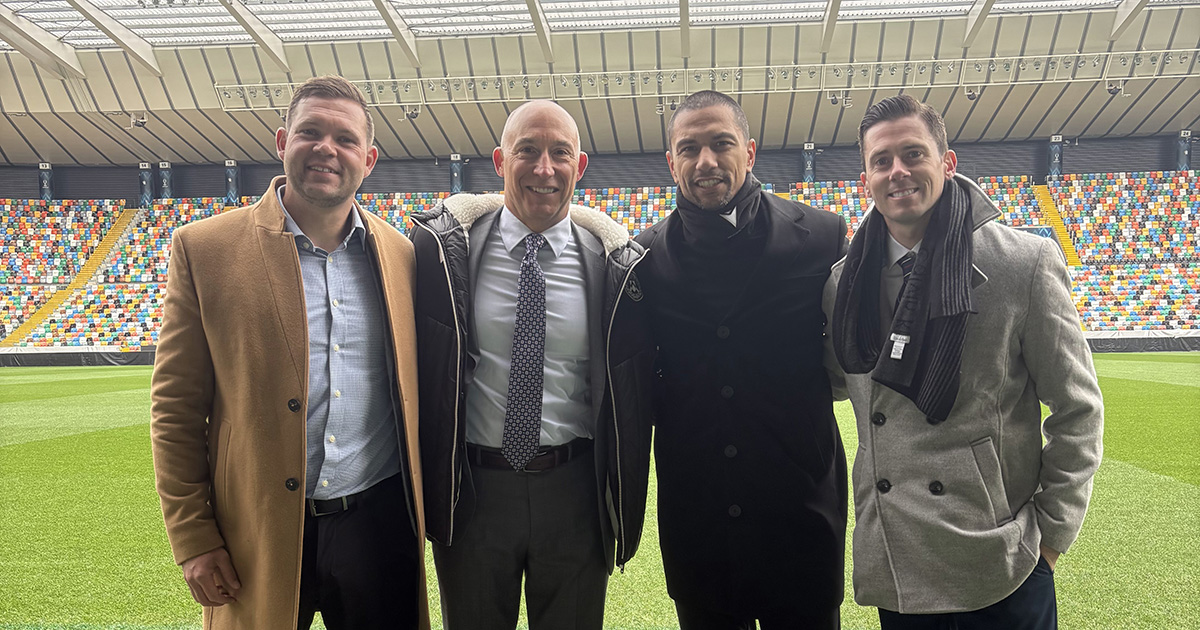Think Big, Observe, and Create Solutions

This is the second installment of an ongoing series about first-year students’ journey through the Foundations of Management and Entrepreneurship (FME) course.
Early in the course, Sophia Pantos ’24 realized its scope was much more ambitious than she had imagined.
Students in Foundations of Management and Entrepreneurship, or FME as it’s commonly called, spend the school year fine-tuning business ideas and turning them into reality. But the goal of the course, as Pantos soon came to understand, isn’t simply to churn out student ventures seeking to make a profit. Instead, FME tasks students with thinking bigger about what their businesses can accomplish.
“FME isn’t just about creating a business. It’s about creating positive change,” Pantos says. “Professors don’t just talk about whether an idea is feasible, they talk about how you are giving back. They don’t just want to create entrepreneurs, they want to create business leaders who will impact the world.”
As part of an ongoing series, we’re telling the story of the FME experience, from the pitches and presentations to the pivots and products. In this installment, we look at the course’s initial projects and how students learn the importance of observing potential customers and thinking about how a startup can make a difference in their lives.
All this learning in the course’s early days ultimately leads up to one of FME’s milestone events: Rocket Pitch.
Focus on Global Problems
The push to think big about the possibilities of business is underscored in the course’s very first deliverable. Student teams are asked to look at one of the 17 Sustainable Development Goals, a blueprint outlined by the United Nations for addressing global challenges, and propose an idea to address it. “It gets them thinking of global problems,” says Bill LaPoint, senior lecturer in entrepreneurship and co-coordinator of FME.
Arya Patel ’24 and his teammates focused on the second UN goal, which calls for “zero hunger.” With two of the team members hailing from India, Patel and his fellow students performed research on Mumbai and discovered that a shocking amount of people there are not getting enough food. “People are going to bed hungry,” Patel says. They also discovered that much of the food produced by the city’s restaurants and hotels is wasted.
“FME isn’t just about creating a business. It’s about creating positive change. … Professors don’t just want to create entrepreneurs, they want to create business leaders who will impact the world.”
Sophia Pantos ’24
The team’s idea, then, was to create an organization that would partner with hotels and restaurants, take their excess food, and distribute it to the hungry. “We realized we didn’t need to create more food,” Patel says. “There is already enough food for people to consume.”
Meanwhile, Pantos and her team focused on the seventh UN goal, which calls for “affordable and clean energy.” Pantos admits that energy is something she takes for granted. “I turn my lights on and don’t even think about it,” she says. For their idea, Pantos and her team members proposed creating an organization that would sell small solar panels, as well as offer micro loans to help pay for them, to areas without reliable power in Africa.
Pantos found this initial class exercise inspirational in how it demonstrated a venture’s potential to address a social need. “I thought it was a great way to open up the year,” she says.
Make Sure to Observe
For the next course project, student teams were asked to pick a social environment and observe what happens there. These observations then could be used to inform a business proposal the teams would present during Rocket Pitch, which was fast approaching.
Patel’s team, for instance, decided to focus on online learning, which has become so common and necessary during the pandemic. He and his team members posted on social media, asking for volunteers they could observe virtually. In all, the team observed a total of 20 online students as they went about their classes, noticing when they were engaged or distracted.
“It’s about observing. You don’t ask questions,” Patel says. “Then you see what problems people are facing.” After their observations, Patel and his team formulated an idea for a social platform called Find My Friend for online students who may be feeling isolated. The platform would connect them with others in their classes.
As for Pantos and her team, they focused on supermarkets. Pantos spent time in three grocery stores, watching the intricacies of how people shop, from the moms arguing with children about what to buy to shoppers who double back through the store because they forgot something.
“It’s about observing. Then you see what problems people are facing.”
Arya Patel ’24
For their business, the team put together an idea called Simple Scan, in which scanners and shopping bags would be placed inside each grocery cart. Then, as shoppers go through the store, they are scanning and bagging items themselves. The proposal promised a more efficient shopping experience.
By taking time to observe, Pantos says her team was better informed about what business idea to pursue. “You observe first and come to a conclusion second,” she says. “Sometimes, the problem with entrepreneurs is they come up with a product that is not applicable.”
Now that the FME teams had their business proposals, their attentions turned to the upcoming Rocket Pitch, in which they would have just three minutes and three PowerPoint slides to present their ideas to classmates and professors.
The viability of their ideas would be judged by these pitches. “This is one of the bigger moments in the class,” Pantos says. “I am nervous, but I am also so excited.”
Pitches and Pivots: Our FME series
Part 1: A Babson Rite of Passage Begins
Part 2: Think Big, Observe, and Create Solutions (above)
Part 3: 3 Minutes, 3 Slides, and the Fate of a Business Idea
Part 4: Preparing for Launch: It’s All About Manufacturing
Part 5: Product Problems, Inventory Issues, and Mailing Mishaps
Part 6: The Final Ledger: Closing Time in FME
Posted in Community




